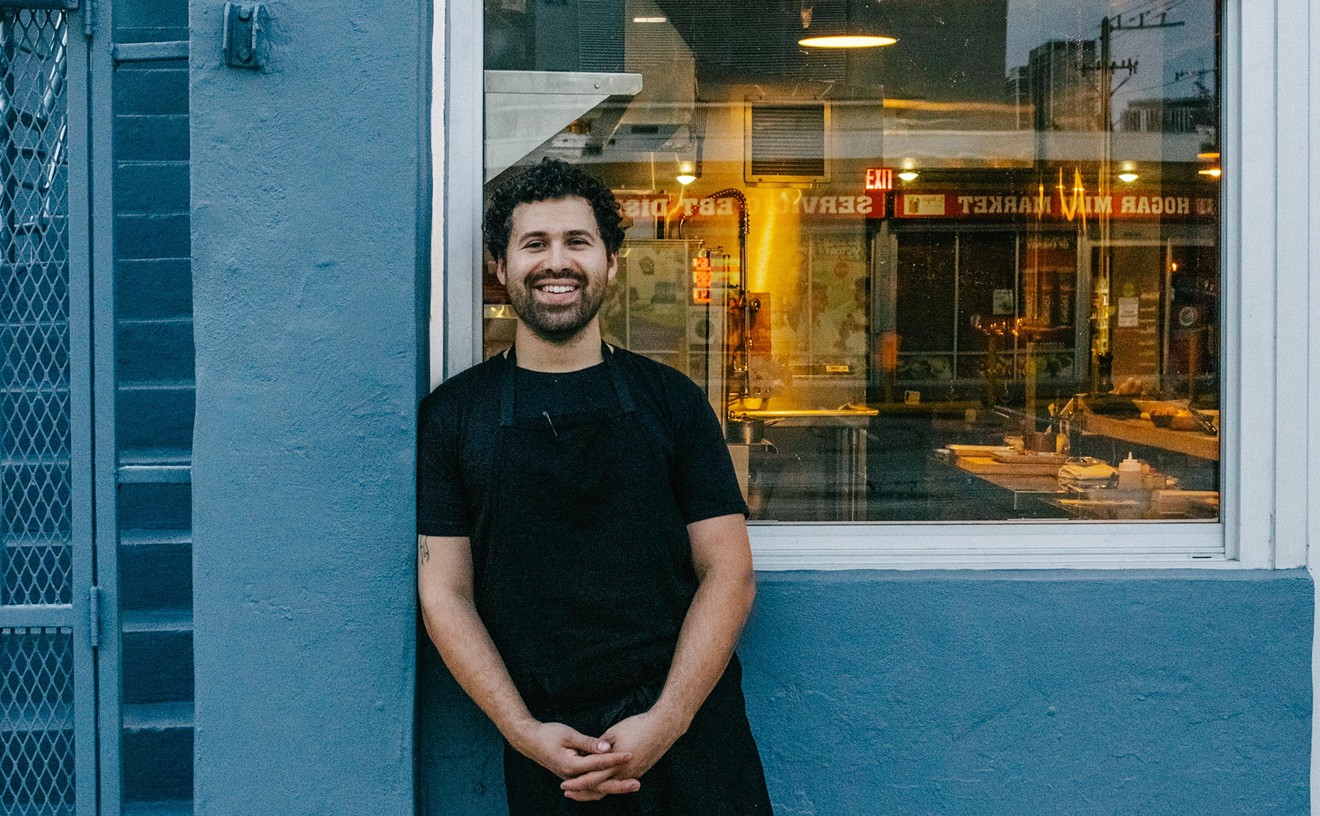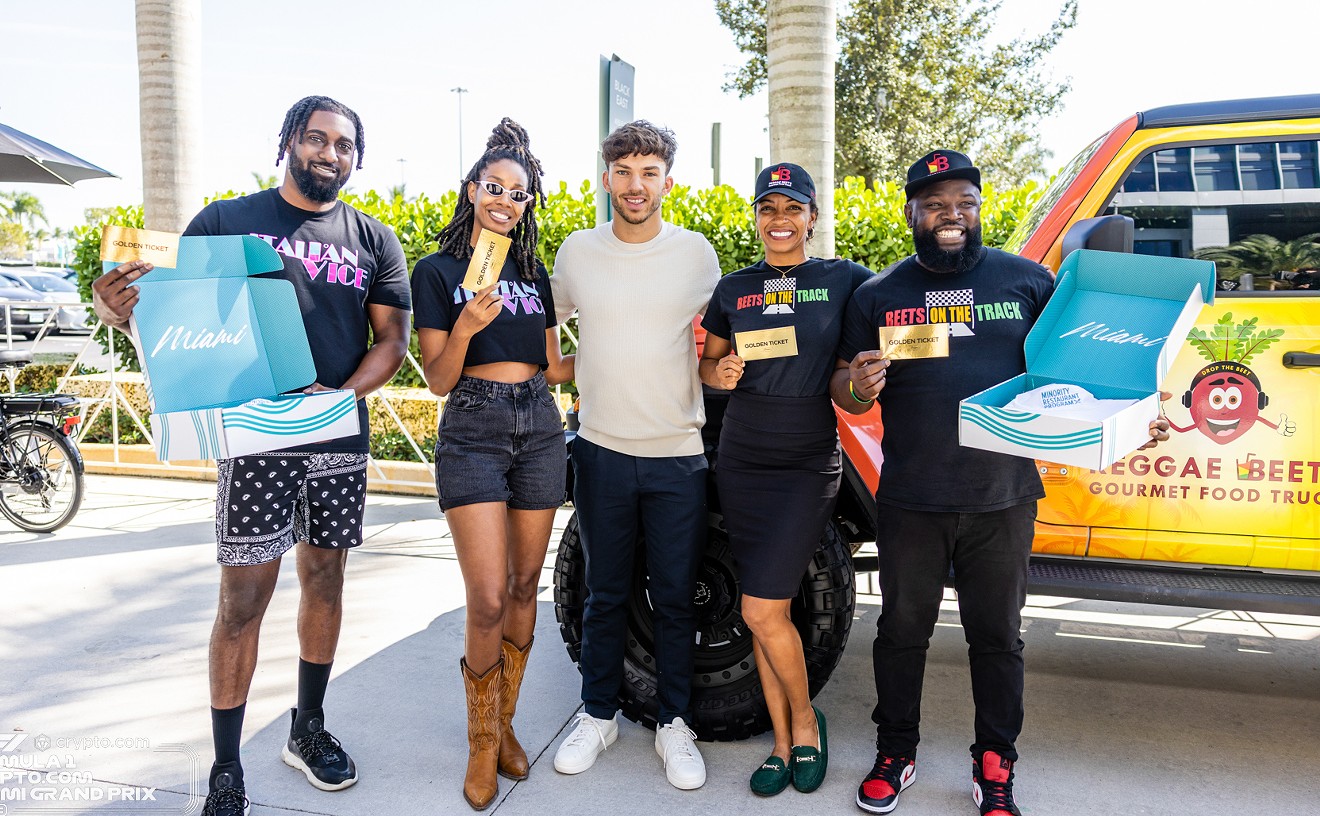Twenty-five dollar hot dogs? $30 hamburgers? That's what Prime 112 charges for what it calls Kobe beef.
The problem is, the high buck meat isn't always what is
advertised. It's not the product of cattle raised in the Hyogo
Prefecture of Japan that in some cases drink beer and receive sake
massages, but instead originates thousands of miles away, on an American or Australian ranch.
Several of Prime 112's Kobe beef menu items have American provenance that is not listed, an apparent violation
of USDA guidelines and state law.
"We were not aware of the requirement for the
specific labeling," owner Myles Chefetz says when informed of the
problem. "Given this info, we will state this on the menu immediately."
Dozens of Miami restaurants include the same type
of misleading information on their menus. And scores of customers every
day pay top dollar thinking they are ingesting the world's most
precious meat.
The list of offending eateries includes both upscale
and casual, as well as local and national chains, concentrated in Miami Beach and Brickell. There's 8 Oz. Burger Bar, Au Pied de Cochon, Bancroft Supper Club,
China Grill, Gordon Biersch, Plat Bleu at the Delano, Meat Market, and
Prime 112. Contacted by New Times, representatives of each admit to serving high-quality American or Australian beef
from similar cattle even when the item is listed as Kobe beef on the
menu.
Indeed, the issue repeats in cities across the
nation. Though the federal government has known of the trend for almost
a decade, not much has been done.
"It's basically become a free-for-all," says
Charles Gaskins, spokesman for the American Wagyu Association, a
Washington state-based industry group with more than 250 members.
"We're aware of the [federal] labeling guidelines, but people do what they
want... Some of them use the term Kobe in their farm names."
Kobe refers to beef from the black Tajima breed of
Wagyu cattle, which are raised in Japan. Prime cuts such as filet, rib
eye, and strip loin are distributed the world over, prized for their
rich flavor and tender, velvety texture. Of course, this beef is
expensive, selling for $16 to $30 per ounce.
At the Bancroft Supper Club in Miami Beach,
manager Karen Martin blames the restaurant's distributor for the menu
items labeled "Kobe beef mini burgers" ($18) and "Kobe beef carpaccio"
($18), which she admits are Australian Wagyu. "The invoices say Kobe,"
she explains. "That's why we list it like that." She will work with chef Tim Andriola to make the description change.
Not all chefs
understand they are misrepresenting products. Executive chef Maria
Manso at the Delano in Miami Beach says her Plat Bleu menu offers "Kobe
beef sliders" for $28 and then reveals they are American Wagyu. "The
menu labeling comes from corporate," she explains. "We leave it up to
the servers, who are well-trained to explain where it comes from if a
customer has an issue or a question. There's no reason to change it."
Phone calls to owner/operator China Grill Management were not returned.
Gordon Biersch, which has locations in 17 states and Taiwan, sells
Neighborhood burger joint 8 Oz. Burger Bar in
South Beach offers seven-dollar "mini Kobe corn dogs," also from Snake
River Farms. Contacted by New Times, owner Eric Fried said he would
immediately update the menu to include the word American. "I was not
aware," he said.
State inspectors are charged with
enforcing a 52-year-old statute, 509.292, which deals with
misrepresenting food. Violating this law is punishable by a fine of up
to $1,000 per violation.
"The use of the term Kobe beef on a menu or
special board is misrepresentation," says Jennifer Meale, DBPR's
communications director. No one has ever been fined or criminally charged,
says Meale. The reason? There have been no complaints.
"It is important
that consumers partner with the department to make us aware of any
possible cases of misrepresentation," she says. "We encourage consumers to file complaints by visiting www.MyFloridaLicense.com." Her email is [email protected].
Check out next week's New Times for the full story.









